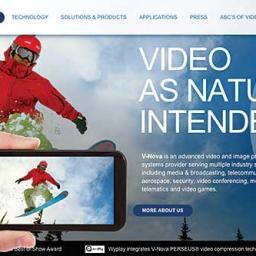Free VP10 video compression standard benefits from HEVC licensing troubles
 Last July, HEVC Advance announced onerous licensing terms which cast a shadow on HEVC/H.265 video compression technology. Encoder/decoder pricing of $0.80 to $1.50 per unit, with no minimum and no maximum cap, even backdated to the technology's first use! They also demanded a 0.5 percent royalty on HEVC-encoded content. Industry reaction to the proposed royalty was universally negative.
Last July, HEVC Advance announced onerous licensing terms which cast a shadow on HEVC/H.265 video compression technology. Encoder/decoder pricing of $0.80 to $1.50 per unit, with no minimum and no maximum cap, even backdated to the technology's first use! They also demanded a 0.5 percent royalty on HEVC-encoded content. Industry reaction to the proposed royalty was universally negative.This seems the motivation for the big news in August, when a new consortium called the Alliance for Open Media announced that it will begin work on a free video compression standard. The group includes tech giants Amazon, AMD, ARM, Cisco, Google, Intel, Microsoft, Mozilla, Netflix, Nvidia and more, while Apple is conspicuously absent. These large companies currently pay hundreds of millions in royalties for video patents and would greatly benefit from widespread adoption of a free and open standard.
Within the next six months Google expects to turn over its work on VP10 to the Alliance, which will blend Google's contributions with those from others to create a final royalty-free video codec standard. In addition, the Internet Engineering Task Force started development of a video codec standard called NetVC, of which VP10 is one candidate, so "some harmonization will be needed," between the two organizations.